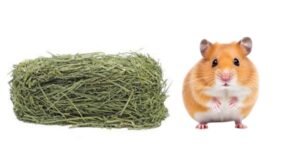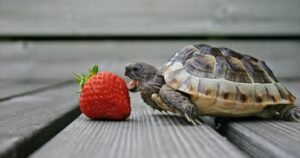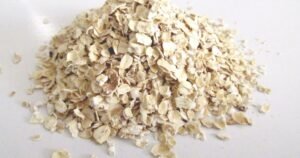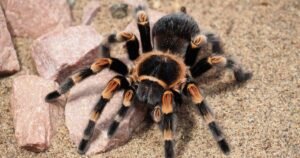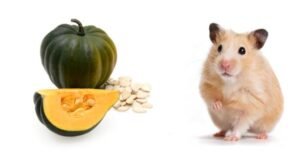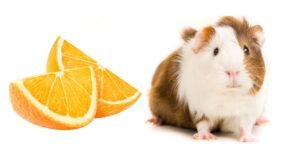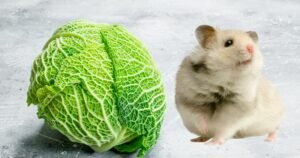If you can find the nest nearby, the most advisable action is to return the nestling to its nest carefully. If you are unable to locate the nest, it’s best to either leave the nestling where you discovered it or relocate it to a shaded location. Rest assured that the parents will return to care for it.
Discovering a baby bird that has fallen from its nest can feel both worrying and compassionate. Finding a baby bird that has fallen from its nest can be an exciting yet daunting experience. This guide will show you simple steps to help them. With the right knowledge and resources, you can ensure that they quickly transition to healthy adulthood.
In this blog post, we will provide some helpful tips on how best to take care of baby birds when they fall from their nest so that both you and the bird may have successful outcomes. Let’s get started on giving these little birds the love and care they need.
Identifying the Age of the Fallen Baby Bird
The first step in aiding a fallen baby bird is determining its age. Baby birds fall into three age categories: hatchlings, nestlings, and fledglings.
Hatchlings are newly hatched birds with closed eyes and little to no feathers. They are the most delicate and require immediate care.
Nestlings are a bit older, with their eyes opened and a covering of fluffy feathers. They are still too young to leave the nest and can’t hop or walk well.
Fledglings, the oldest group, have feathers and can hop, walk, or even fly a little. They often leave the nest to learn flying and foraging skills.
Usually, their parents are still looking after them. Remember, the best way to help a baby bird is often to let its parents do what nature intended.
However, if that’s not possible, you now have the basic knowledge to step in and help.

Assessing the Situation of the Baby Bird That Has Fallen From The Nest
It’s important to assess the situation carefully before you act when you find a baby bird that has fallen from its nest.
Firstly, look around to see if you can locate the nest. If it’s within reach and the bird appears unharmed, you can gently pick it up and place it back in its nest. Next, observe the baby bird from a distance.
If it’s fledgling, its parents might still be close by, watching out for their young one and providing food. Fledglings are often found on the ground as they are learning to fly, and it’s a normal part of their growing process.
However, if the bird is injured, appears weak, or is a hatchling or nestling, it may need your help. In this situation, the best course of action is to contact a local wildlife rehabilitator.
Lastly, if the nest has been destroyed or is unreachable, you can make a substitute nest.
A small container filled with soft material like tissues or a soft cloth can serve as a makeshift nest.
Again, place this makeshift nest in the same tree or a nearby one and observe from a distance.
In all cases, remember: safety comes first. Handle the bird as little as possible, and always wash your hands afterward.

Providing Basic Care for the Fallen Baby Bird
In the unfortunate event of finding a baby bird out of its nest, your swift and informed action can make all the difference.
This section will guide you on how to provide basic care for a fallen baby bird, ensuring its best chance at survival.
1. Creating a Warm Environment
Once you have assessed the situation and determined that the baby bird requires your assistance, the next step is to create a warm environment.
Place the bird in a small box lined with soft tissues or cloth and provide a gentle source of heat.
A heating pad on a low setting placed under half the box can work well, allowing the bird to move to a cooler area if it becomes too warm.
2. Hydrating the Baby Bird
Hydration is key for the baby bird’s health. Do not give it water directly. Baby birds can get the water they need from the food they eat.
Give it wet, canned dog or cat food, or soaked cat biscuits. They are safe and easy for the bird to eat. Make sure the food is at room temperature when you feed the bird.
This helps keep them hydrated without the risk of choking.
3. Feeding the Baby Bird
Feeding a baby bird needs care. Birds eat bugs and worms.
Some birds eat seeds and berries. Baby birds need food every 15-20 minutes from sunrise to sunset.
Don’t feed birds bread or milk. It’s not good for them. Use a tiny spoon or stick to give food.
4. Contacting a Wildlife Rehabilitator
Remember, caring for a fallen baby bird is a temporary measure.
The ultimate goal should be to get the bird to a qualified wildlife rehabilitator as soon as possible, who can provide the best care and the opportunity for the bird to return to the wild eventually.
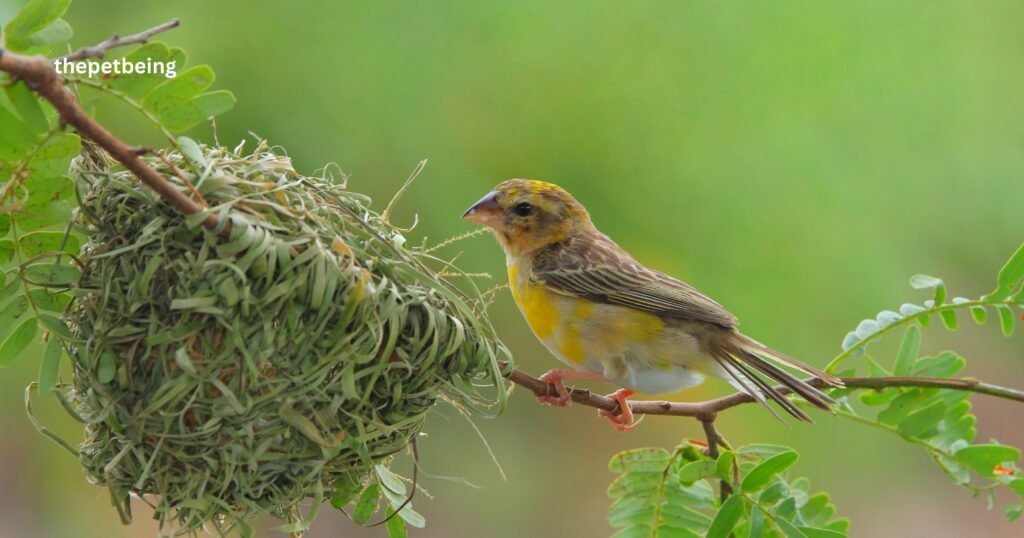
Easy Ways to Feed a Fallen Baby Bird
Feeding a fallen baby bird requires patience and care. The type of food and frequency of feeding depends upon the bird’s age.
Very young birds, called “hatchlings,” need to be fed every 15-20 minutes from sunrise to sunset. As they grow older, the frequency decreases.
Make sure to give the right type of food. Baby birds typically eat insects and worms.
Sometimes, moistened dog or cat food can be used as a substitute. Small birds can also eat a mixture of cereal and hard-boiled egg yolk.
Use a small spoon or a stick to feed the baby bird. Be gentle and make sure the food is at room temperature.
Hydration can be maintained by providing soaked food, but avoid giving water directly as there is a risk of choking.
Conclusion
How To Take Care Of Baby Birds That Fell From The Nest? Taking care of fallen baby birds is a responsibility that requires kindness, patience, and understanding. It’s important to assess the bird’s age and condition first, as these factors determine the level of care needed. If the bird is fledgling and unharmed, it might be best to leave it alone as its parents are likely nearby. For hatchlings and nestlings, or if the bird is injured, seeking help from a wildlife rehabilitator is vital. Your role involves creating a warm environment, feeding, and hydrating the bird properly. However, this is temporary. The ultimate goal is to ensure the bird can return to the wild where it truly belongs. We hope this guide has given you the basic knowledge to help these little creatures should the situation arise. Remember, every life counts, and your efforts can make a significant difference to a fallen baby bird’s survival.
FAQs
How do I determine if a baby bird needs help?
To see if a baby bird needs help, first look at it. If it has feathers and is hopping around, it may be learning to fly. Watch from a distance to see if its parents come. If it’s tiny, has no feathers, or looks hurt, it might need help. You can call a wildlife helper for advice.
What kind of container should I use for the baby bird?
For the baby bird, use a small, clean container. A shoebox is a good choice. Make small holes in the bottom for air. Line it with a soft cloth or tissues, but don’t use towels because the bird’s feet can get stuck in the loops. Place the container in a calm, warm spot. Don’t put it in direct sunlight. Remember, this is a temporary home for the bird before you can get it to a wildlife helper.
What should I do if a baby bird is injured?
If a baby bird is hurt, don’t try to fix it yourself. Call a local wildlife helper right away. They know how to help hurt birds. While waiting, keep the bird warm and quiet. Use a small box with a soft lining and small holes for air. Don’t give the bird food or water. The wildlife helper will know what to do. This is the best way to help a hurt baby bird.
What kind of food can I feed a baby bird?
Baby birds eat different things depending on their species, but most baby birds eat insects and worms. You can feed a baby bird with a wet, canned dog or cat food or soaked cat biscuits. Remember not to give birds bread or milk as these are not good for them. Always make sure the food is at room temperature when feeding them. Use a tiny spoon or stick to give them food. Do not give water directly to the bird, as it might choke. They get the water they need from their food.
How long should I care for a fallen baby bird?
Caring for a fallen baby bird should only be done until you can get it to a wildlife helper. This can take a few hours or a day, depending on the situation. Your job is to keep it warm, hydrated, and fed. But, you must get it to a professional as soon as you can. They can give the bird the best care and help it get back to the wild.
Can you give baby birds water?
No, you should not give baby birds water directly. This is because they can choke on it. Baby birds get the water they need from the food they eat. Feeding them wet, canned dog or cat food or soaked cat biscuits can provide them with both food and water. It is important to make sure the food is at room temperature. Remember, this is only temporary until a wildlife helper can take over. They are the best people to take care of baby birds.


